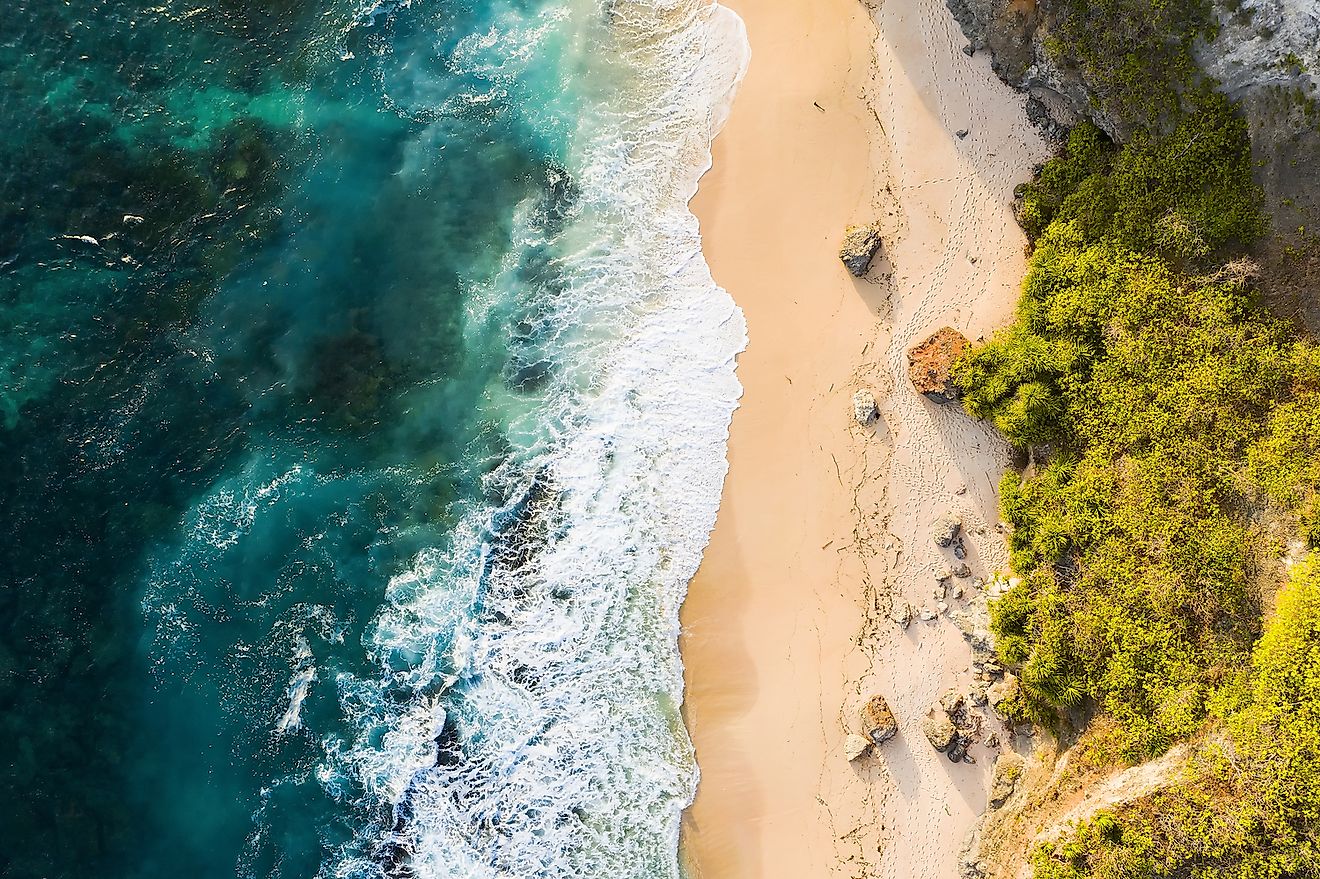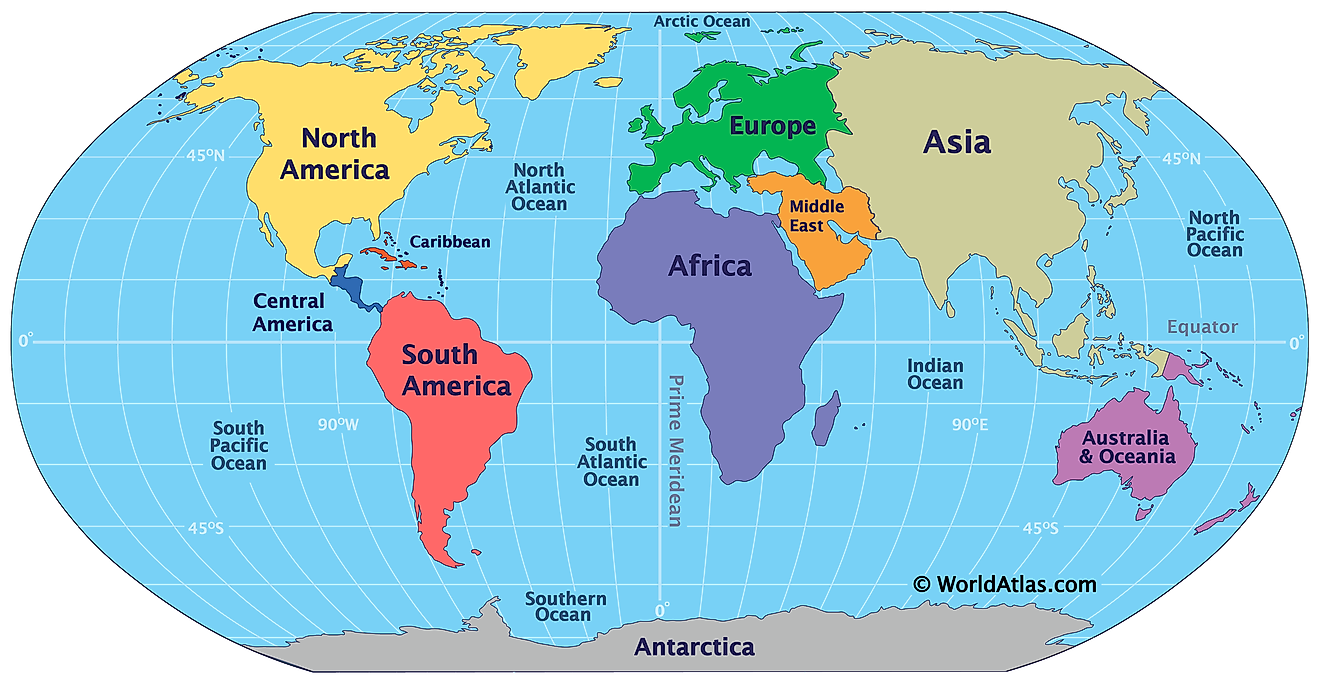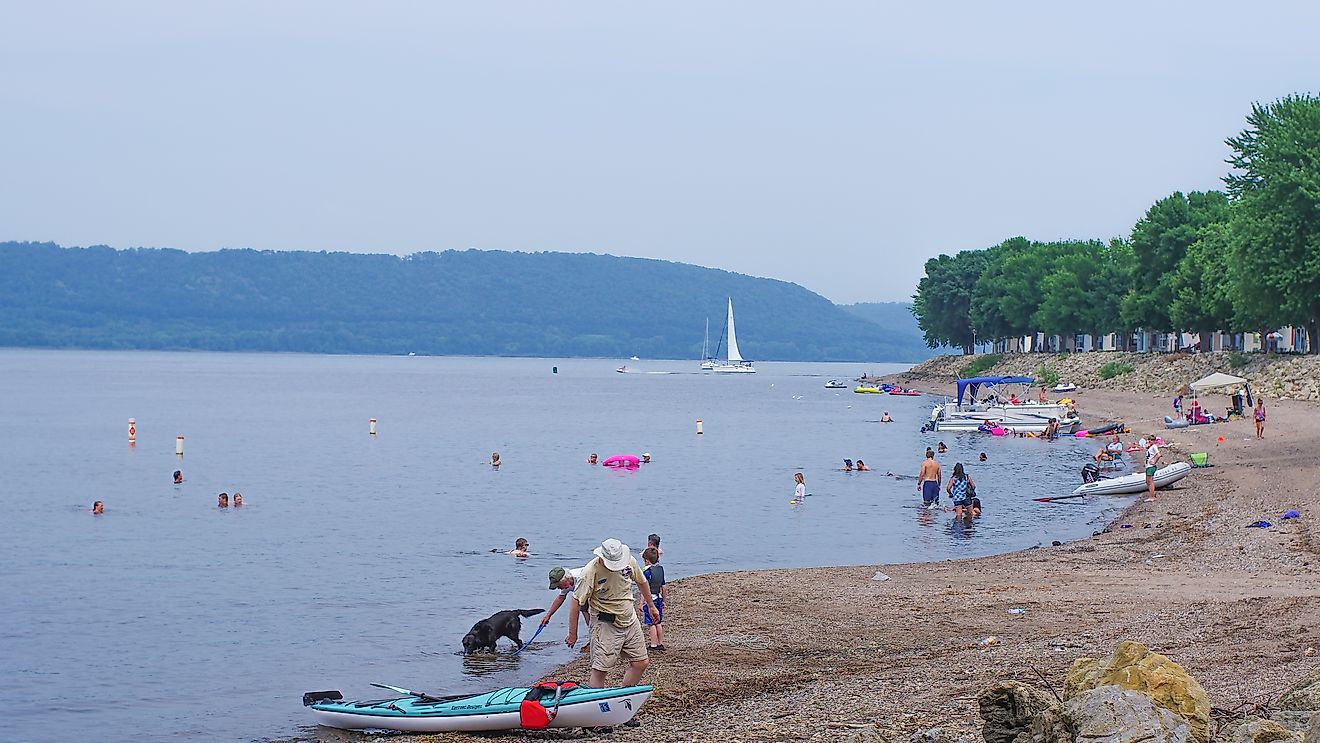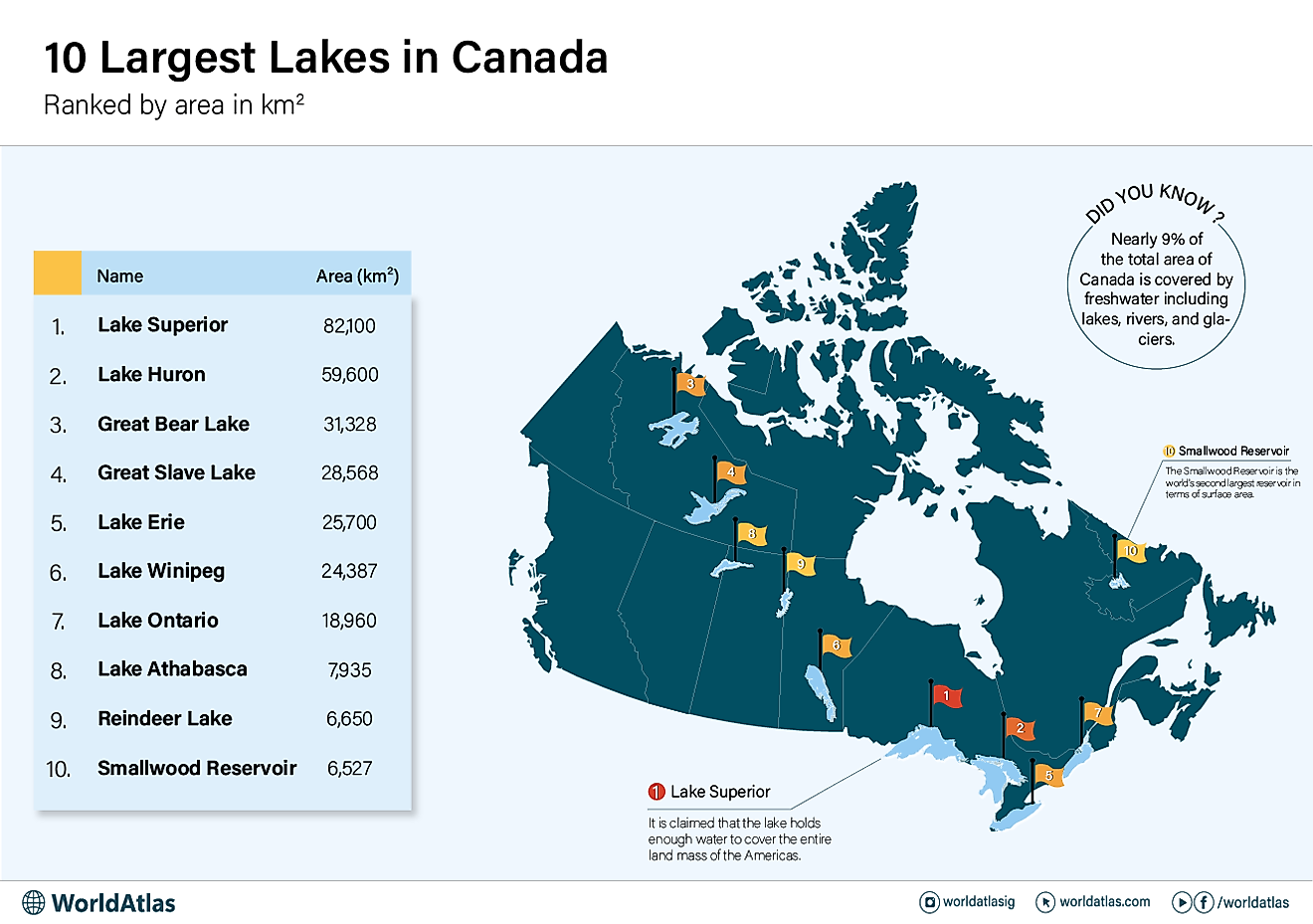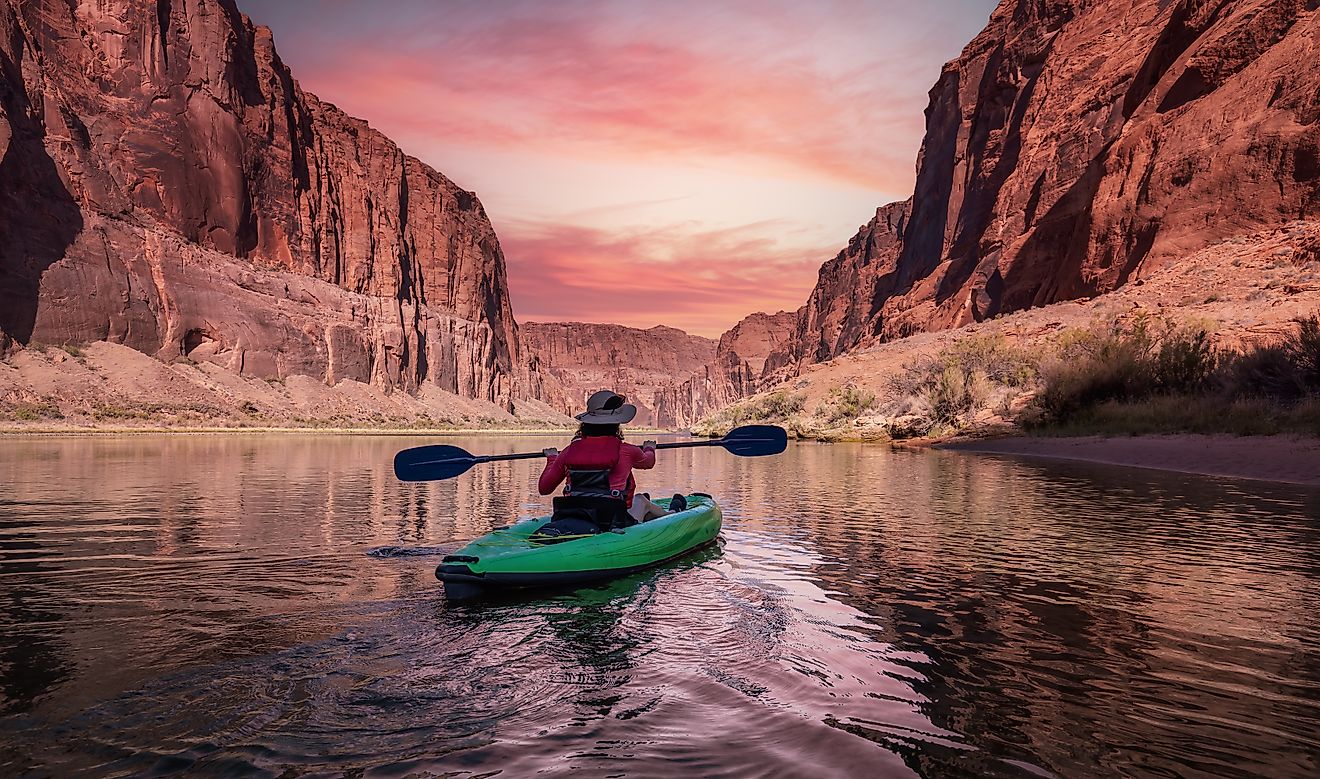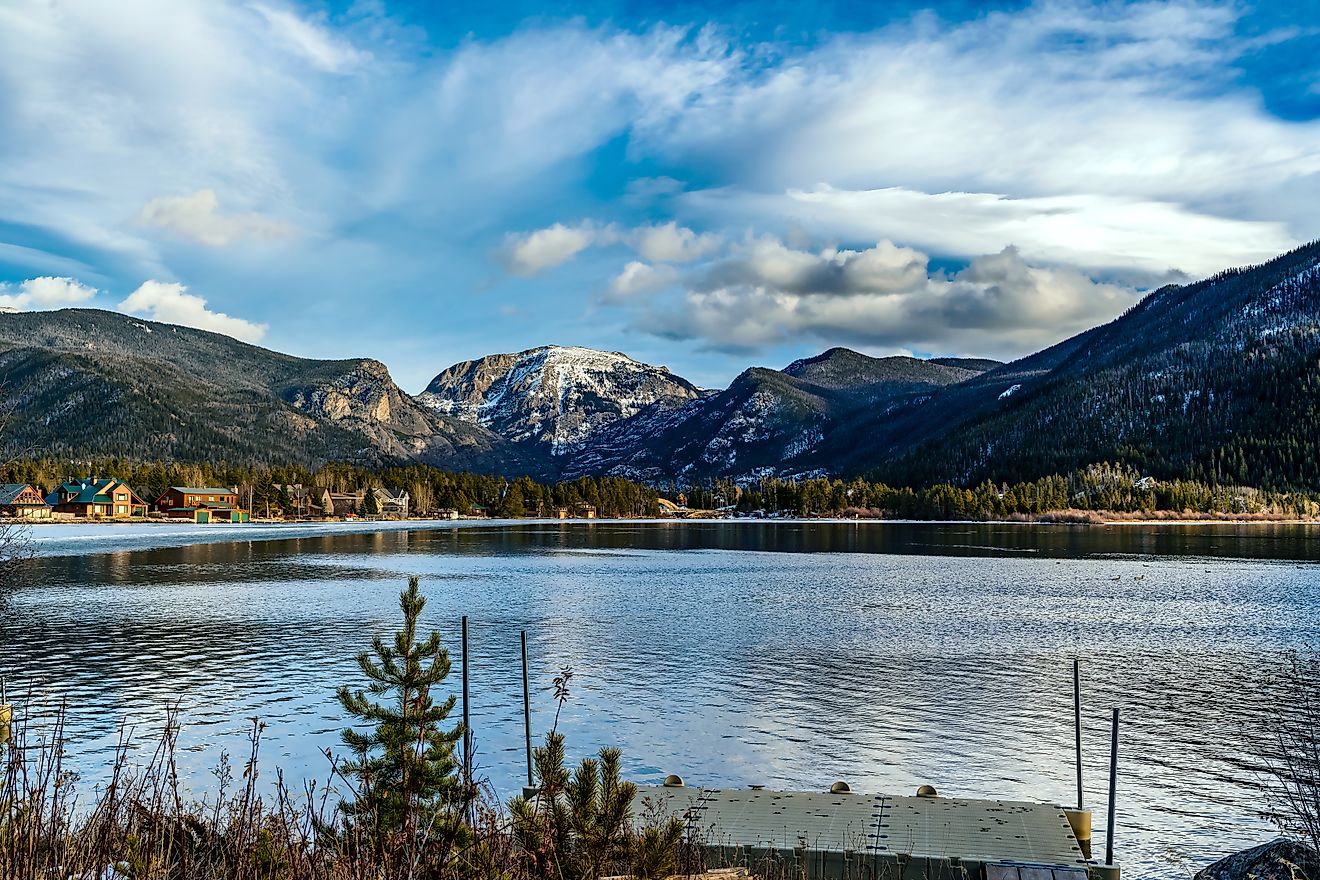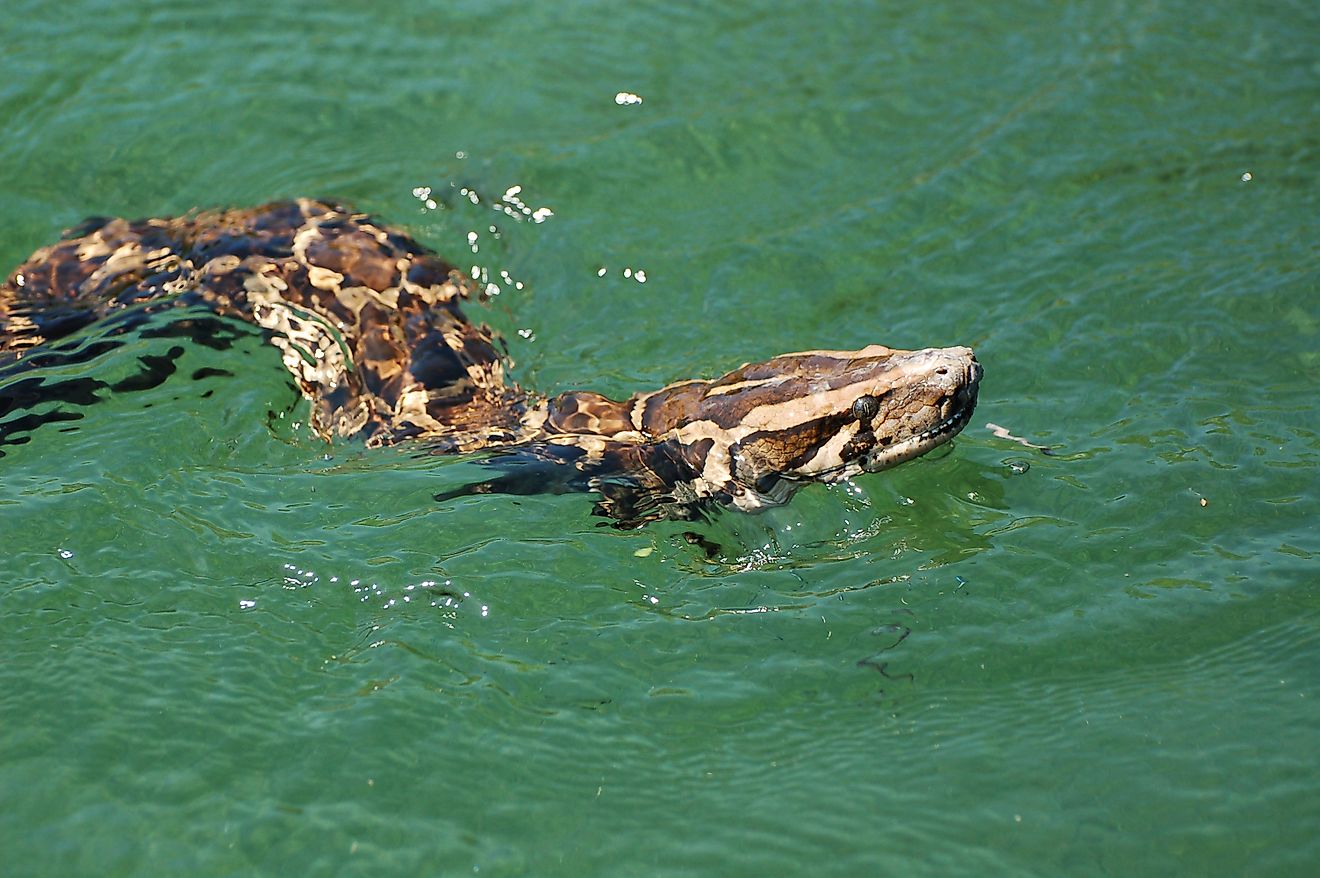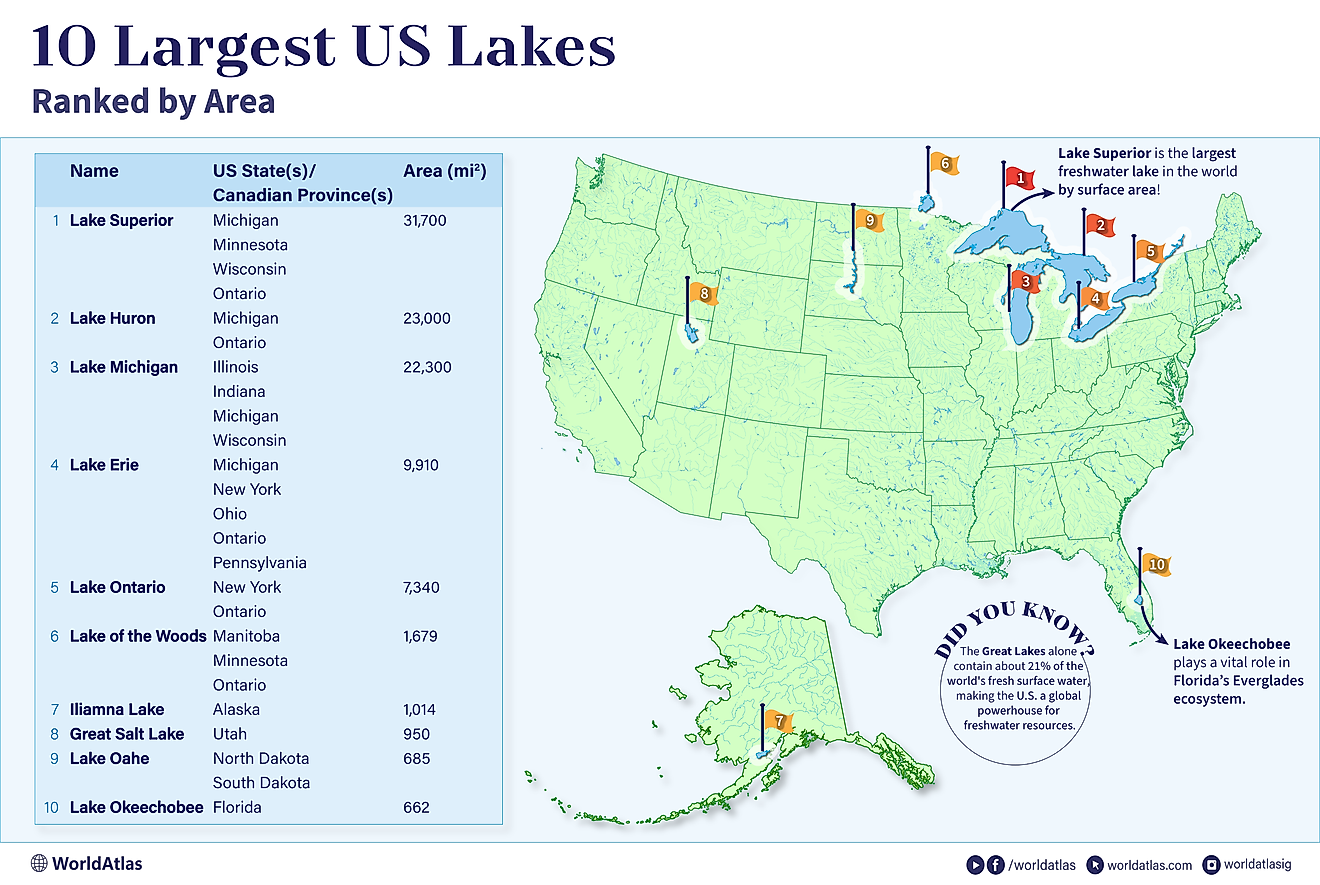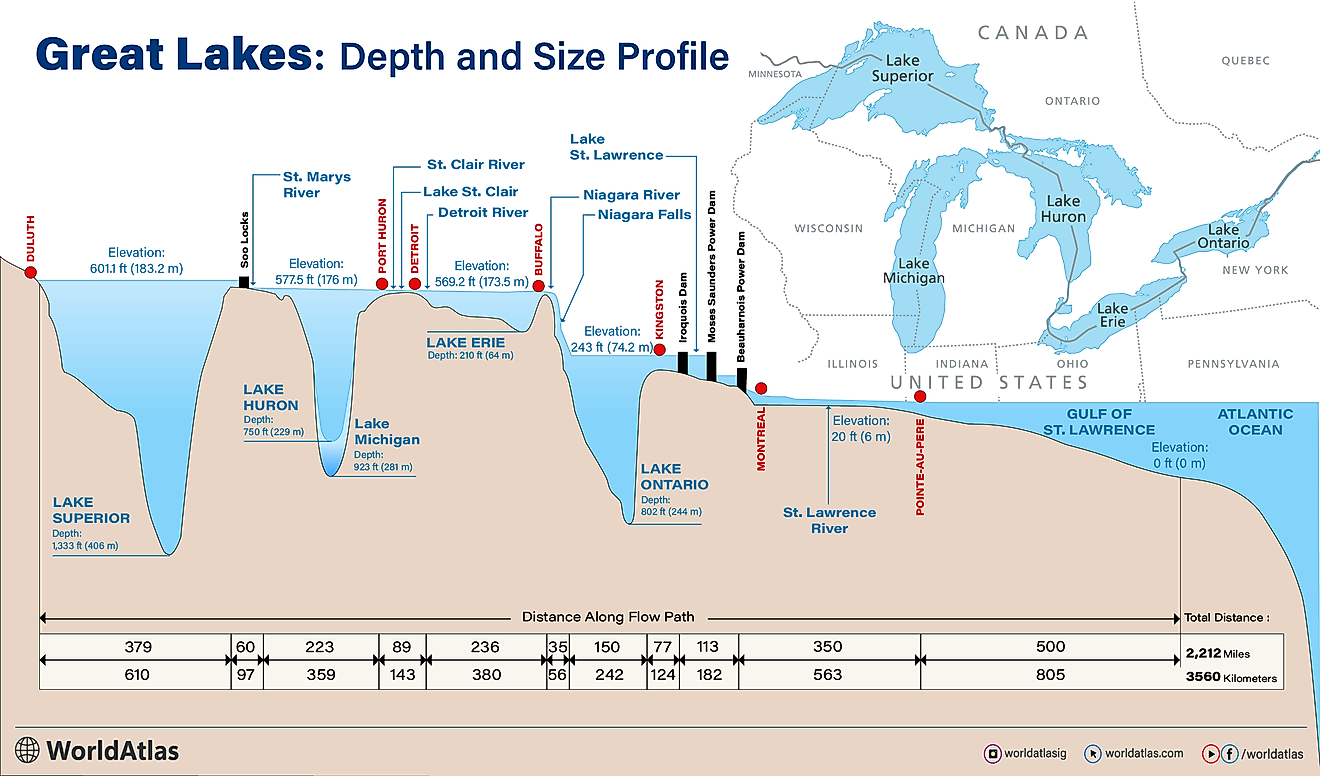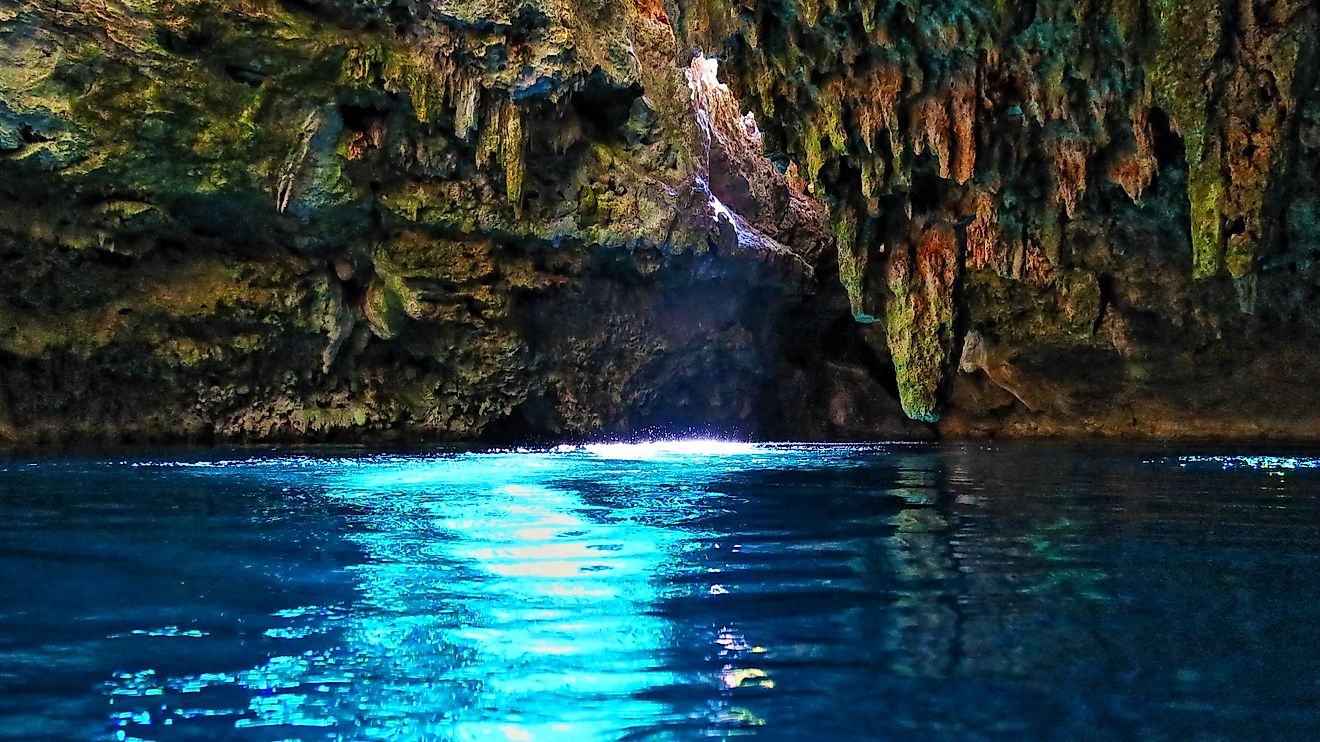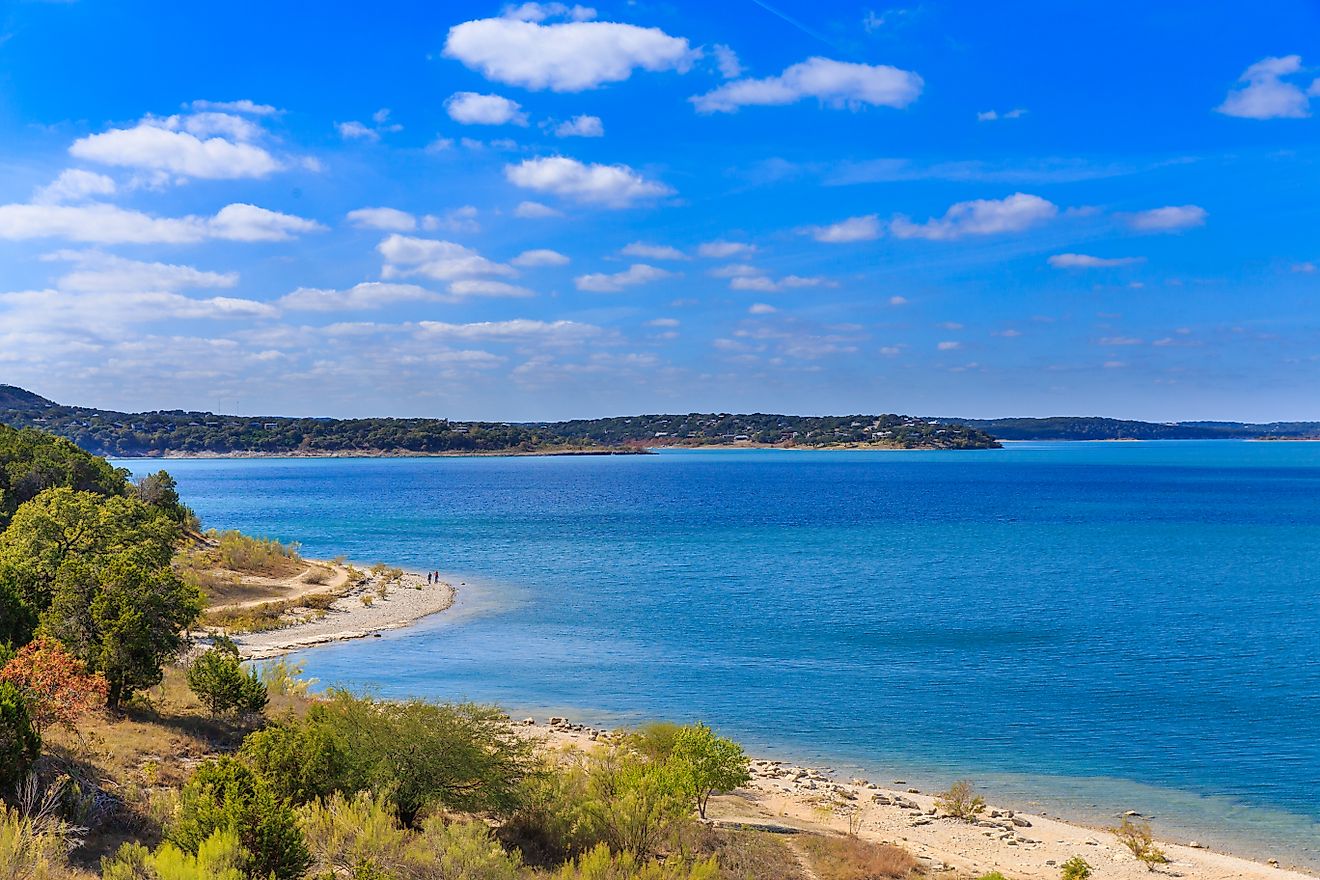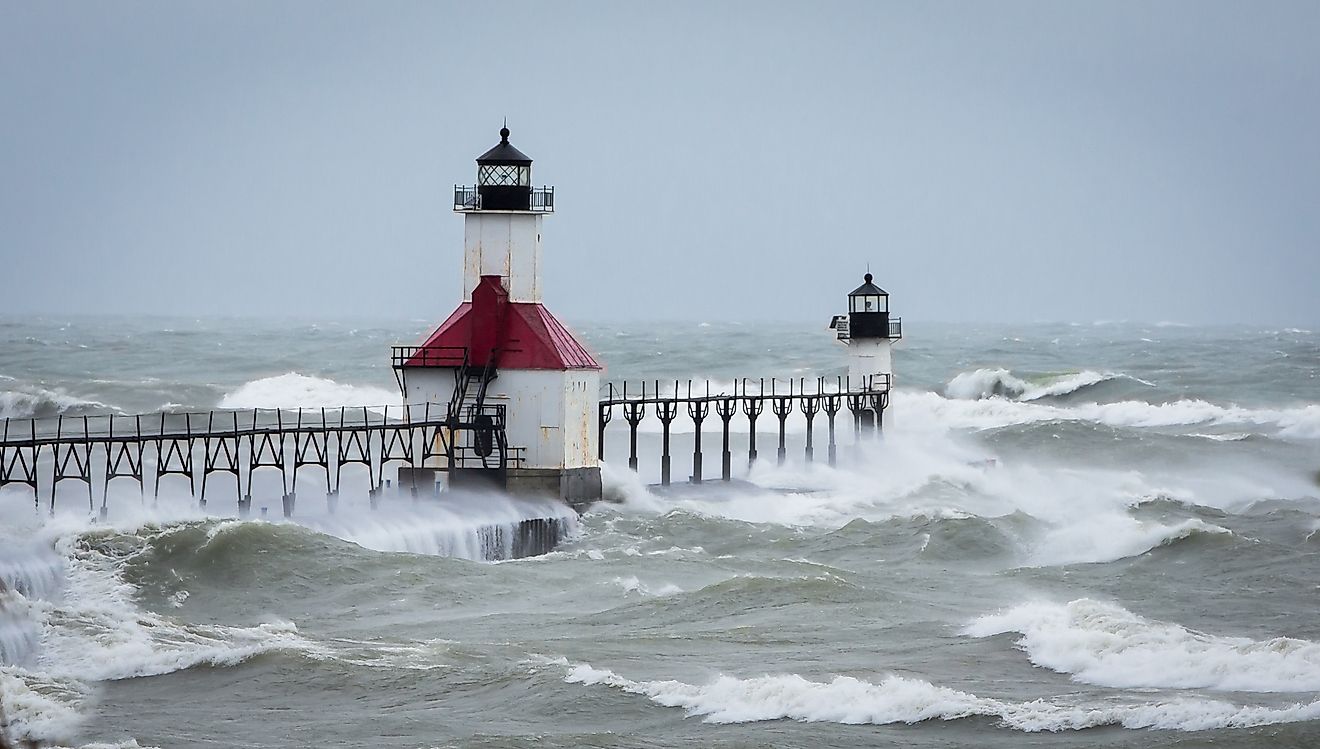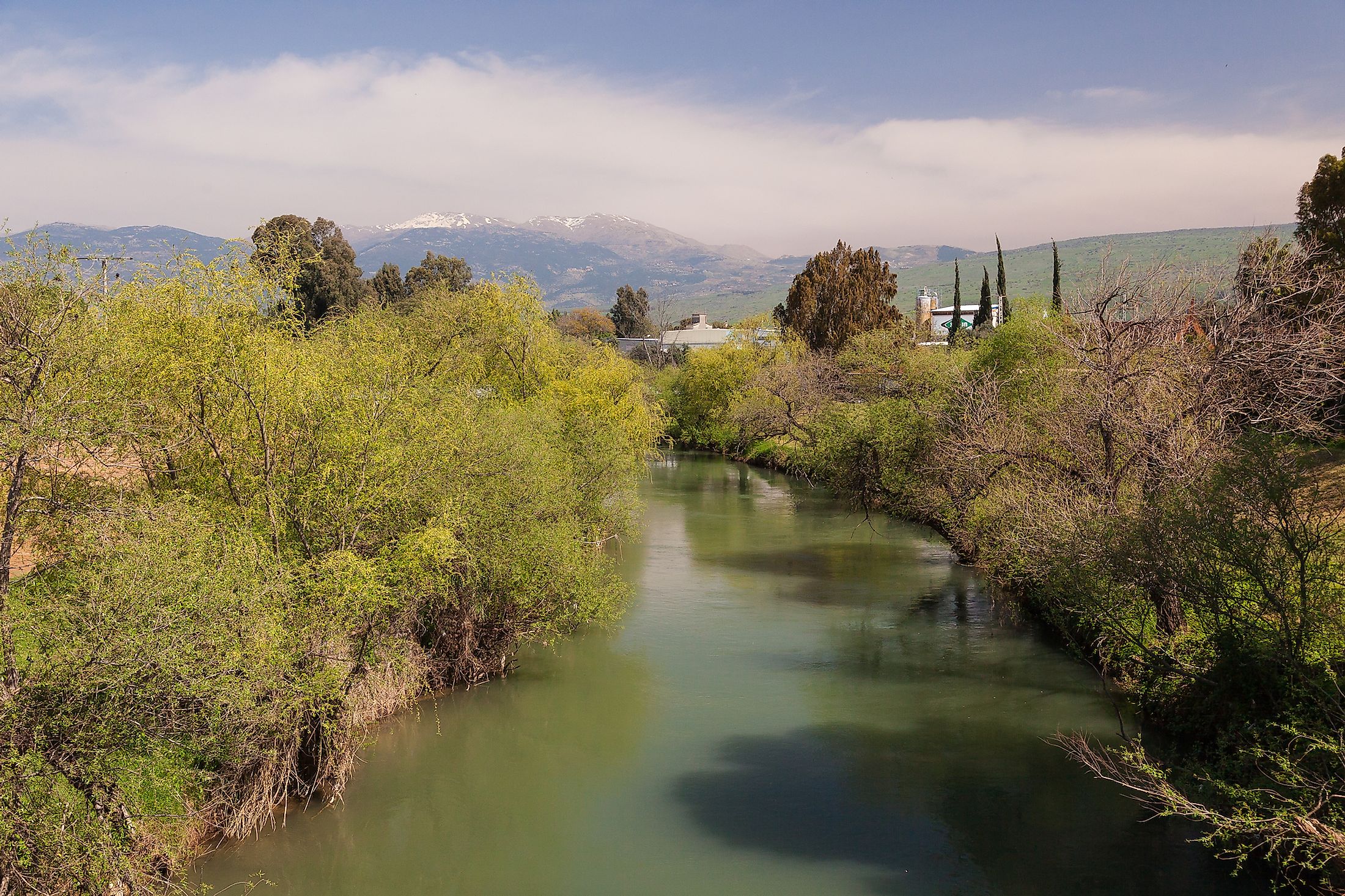
Jordan River
Also referred to as Nahr Al Sharieat in Arabic, the Jordan River is a long river in the Middle East that flows from the north to south direction through the Sea of Galilee to the Dead Sea. The Jordan River has a total length of more than 360km but due to its meandering course, the river’s actual length from its source to the Dead Sea is about 220km. The Jordan River is bordered by the Golan Heights and the Hashemite Kingdom of Jordan in the east; and by Israel and the Palestinian West Bank in the west.
Geography
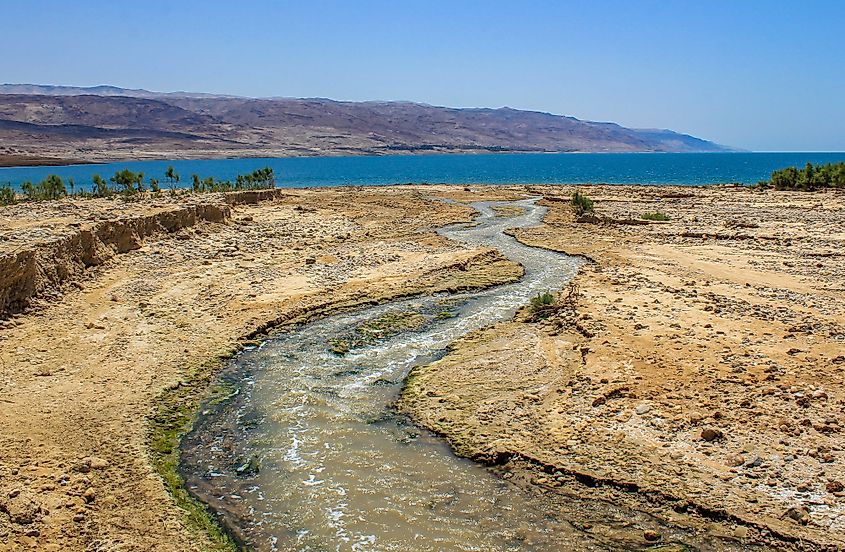
The Jordan River originates from the southern slopes of Mount Hermon in the Anti-Lebanon Mountain Range, close to the boundary between Lebanon and Syria. In the upper course, the river receives waters from the Hasbani River, Dan River, Banian River, and the Iyyon Stream. The river then passes through the Hula Valley in the northern part of Israel. At the southern end of the Hula Valley, the Jordan River cuts a gorge and then drops down sharply to the northern shores of the Sea of Galilee or Lake Tiberias. From the sea, the river again flows southwards and is joined by the Yarmouk River and the Zarqa River. Here, the river is also joined by two more tributaries including Harod and Yabis Rivers. The Jordan River finally empties into the Dead Sea. After the Mediterranean Sea, the Jordan River is the largest source of water in Israel. Currently, the Jordan River discharges about 20 to 30 million cubic meters of water annually into the Dead Sea, which is much less compared to its historic discharge of 1,300 million cubic meters of water per year. The lower course of the Jordan River from the exact point where it exits the Sea of Galilee to the Dead Sea is referred to as the Jordan Valley. This 105km long Jordan Valley forms a part of the Jordan Rift Valley and has the lowest elevation in the world starting at -212m and ending at -400m.
Brief History
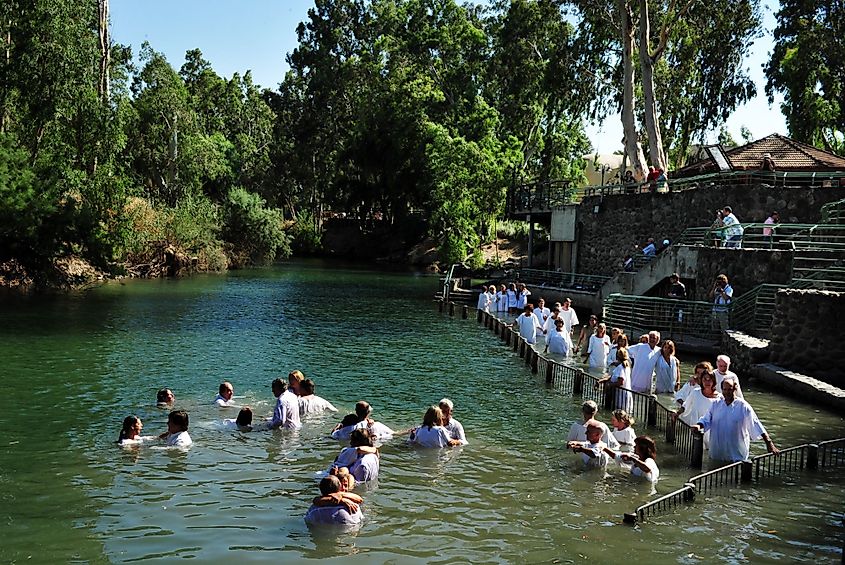
The Jordan River was originally called the “Aulon” by the Greeks and after the Crusades, the river’s Arabic name “Nahr Al Sharieat” (“Watering Place”) became more popular. The Jordan River is highly revered by Muslims, Jews, and Christians. According to the New Testament, Jesus Christ was baptized by John the Baptist in the Jordan River. The Bible also mentions that the Israelites made a hazardous journey across the Jordan River to escape from their slavery in Egypt and to reach their freedom in the “Promised Land”. Throughout the 19th century, explorers such as Christopher Costigan, John MacGregor, William Francis Lynch, and Thomas Howard Molyneux have thoroughly explored the Jordan River and the Dead Sea. In 1964, a pumping station was built by Israel that diverted the waters to the National Water Carrier from the Sea of Galilee. At the same time, a channel was constructed that diverted waters from the Yarmouk River to the East Ghor Canal. In addition to these, several reservoirs have been built by Syria to hold the waters of the Yarmouk River, which is the main tributary of the Jordan River. The Jordan River has been a cause of serious political tension between the countries of Israel, Jordan, and Syria for assuming control over the waters of the river. Nevertheless, there has been a serious deterioration in the water quality of the Jordan River, especially in the lower courses mainly due to the discharge of untreated sewage, agricultural wastes, and diversion of saline springs into the river water. The Friend of the Earth Middle East organization in 2007 had listed the Jordan River as one of the most endangered ecological sites in the world, mainly due to the lack of cooperation between Israel and other Middle East nations in protecting the Jordan River.
